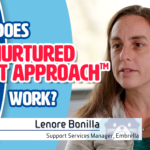So, you’re a new foster parent – congratulations! You’ve successfully completed your pre-service training and are ready to make a difference in the lives of children in need. Since you’ve been licensed, you’ve been excitedly (and a little anxiously) waiting for the phone to ring and hear a caseworker say, “I have a child who needs you.” But it’s been weeks, maybe even months, and still no call. New foster parents often ask the same question about the foster care placement process: when will I get my first foster child? Here are some things to keep in mind while you wait, as well as a few tips to help increase the chances that you’ll be the person who gets the call for the next child who needs to be placed in a safe and stable home.
Things to Keep in Mind About the Foster Care Placement Process
The more open to different types of children you are, the more likely it is you’ll soon receive a foster care placement. Foster children come from many different circumstances. They are many different colors. They have many different challenges and many unique needs. If you are only interested in fostering children of a certain race between certain ages, you may not get a placement as quickly as the foster parent whose criteria is more open.
You may also be more likely to receive a placement if you take in children that others may consider difficult, like teens or children with special needs. While many foster parents do set some ground rules for placements, such as no foster child older than the oldest biological child, which is a fairly common one, many are open to helping as many children as they can.
You should never take in a foster child you are certain won’t be a good fit for your family just because you want a placement. Imagine this: You’ve wanted to start fostering for so long and you’ve finally gotten the call you’ve been waiting for. You’re so excited that you forget to ask some very important questions like whether the child has been sexually abused. You also forget to ask if the child has any developmental delays or major health issues to contend with. You even forget to ask if you would be the child’s first placement or if the child has been in care before, and if so, why the child is being moved. It’s not a big deal that you didn’t ask, you tell yourself; the caseworker wouldn’t have called you if she didn’t think you were right for this child.
Caseworkers do try to make good matches between foster parents and children coming into care. But only you can know what your family can – and cannot – cope with, and you need to make a decision based on your judgement. Make sure you get as much information as you can at the beginning of the foster care placement process so that you can make an informed and rational decision. Like all children, foster children need someone who will stick by them, even (or especially) when they are angry, sick or sad. As someone committed to helping children in need, it’s your duty to find out as much as possible about a child before they are placed with you so you can determine if you can be that person.
Kinship foster care is on the rise in many areas, making the foster care placement process longer for new foster parents. In many U.S. states, caseworkers try to place children coming into care with relatives or family friends as a first option, rather than placing them in traditional foster homes. The number of grandparents raising grandchildren is growing, and some new foster parents find themselves waiting longer than they thought for children who need them.
The pros and cons of kinship foster care are hotly debated topics, but the majority of people feel that placing children with family members they already know and often love is better for kids in the long run. Foster parents who are trained in handling special cases, such as medically fragile children, teens and more are more likely to get placements in this new environment. With this in mind, you may want to consider additional training that could make you more likely to be called when a child with needs that match your expertise is in need of foster care placement.
No matter how long the foster care placement process takes, it will be worth the wait once you’ve helped your first foster child. Once you’ve given a child in need safety, security and sense of normalcy, your frustration at waiting will ease. You’ll be left with a sense of satisfaction and anticipation that will carry over until the phone rings again and you welcome the next child who needs you into your home.



this has been a long drawed out thing for some friends they have been working on this for over a year.They moved to a better home and once they moved and stayed with relatives for a couple months until they found a house to buy the caseworker act like she didn’t really remember alot of their stuff.She said she lost or (misplaced)alot of their paperwork it has been torment.They are having to do alot of their stuff over.Its already cost them around 1200.00 to get ready for it.I don’t think they will ever get it done…I can see why alot of people back out of doing it.They say in our area and surrounding counties theres a crisis for foster home but I beg to differ if there were they would use what they have thats willing to do it.
I totally Understand your frustration, because I have gone through the whole process to be told that My BIO niece and nephew said that they didn’t want to leave from where they are at this time. I’m so confused at this point.
The waiting can be so dawning!!! I have my days when I’m like “give me that child” so I provide a loving, stable home for him/her. Most days I jump at every unknown call in anticipation that it my caseworker. Our process started back in October 2016 with training classes, we were finally finished with paperwork & home study by late February 2017. Three caseworkers later still no call. I try to keep the house nice and extra tidy, plenty of kid snacks and kid ready. We spent hundreds of dollars in preparation for safety precautions to clothes, toys, books, hygiene etc. to give this child(ren) just about everything. But I realize that in order for me to receive a child this same child has to go through some form of trauma; I’m just waiting day by day it’s now almost May. I (we) just want to help a child in need. We just want to see him/her smile, feel safe/secure feel loved. So in the meantime I’ll just keep waiting.
Where your niece and nephew able to make that type of decision if so how old where they?
It’s good to know that there is additional training for foster parents who will be handling special cases such as medically fragile children. I believe that this is a good way to prepare foster parents so that they can provide the best possible care for children who have this issue. My friend is planning to become a foster parent. I’ll make sure to mention this to her so that she can consider knowing the process for handling children with special cases and at the same time allow them to learn more about taking care of children with different needs.
I got my license for fostering is been a month and no call I spend so far ,500 dollars in this month of December 2018 got the room ready for a boy from 5 through 10 or a girl from any age.because my 19 year old granddaughter lives with me and needs a sister or a brother figure lol and I miss having a little kid in my life and I also want to care and give the love to a child that they don’t have ???????? so I hope to God that phone rings from the social worker or the workers.im in wisconsin.what I don’t understand is that there are lots of kids living in a orphanage they need a place to call home.and real homade food on the table and a clean neat room with TV blue ray wueen bed so he could move and stretch as much as he or she wants and hope they like cats I have 5 clean fix shots they are well taking care off too.im 56 grand mom of 11 grand kids 3 daughter s gave me my beautiful well behave grand kids I love them all they are the world to me I only see 6 the others live far ???? but I travel to see them once a year.i live alone with my granddaughter.but I want a little kid in my life .how long more do I have to wait ????
I did everything I was suppose to do in a short period of time so I would draw my first check in Jan 2019. Signed all my paperwork by Dec 31 2018 was suppose to get my check between 19th and 21st. Didn’t come they lost some paperwork and I had to resign. Why wouldn’t I get paid for Jan when it was their fault
Hello Kay ,
Thank you so much for reaching out to embrella for assistance. It’s unfortunate to hear about the difficulties that you have been experiencing. If the child was in your care you should have received a board rate for that child. I would recommend that you use the chain of command and reach out to the child’s worker in regards to this situation. If you are in New Jersey and you find that you are still experiencing difficulties with finding a resolution to this problem please reach out to us and one of our Family Advocates can further assist you.
Sincerely,
Lenore Bonilla
Support Services Manager
We have been waiting over 8 months for our long term foster child, no sign. My daughter is so fed up of me telling her that her sister is coming soon, she’s now saying she doesn’t want her. This is heartbreaking after IVF, adoption process and now this wait. Though not as heart breaking as what our foster child is probably going through. Just feel like this is never ending and maybe we are just meant to be a family of three. So wanted more kids. Feel so sad, i’m such a good mum too.
Hi Suzanna,
The time it takes to become a foster parent varies for everyone. Typically, the licensing process can take anywhere from three to six months or longer. There are many factors which affect how long a foster care placement might take. There are a few things that will affect how quickly you might get a call. The most immediately obvious of these is the county of residence because different counties have different needs. Kinship foster care is also on the rise in many areas, making the foster care placement process longer for new foster parents. The more open to different types of children you are, the more likely it is you’ll soon receive a foster care placement. If you want a certain age, race, religion, health status or ability, you may not get a placement as quickly as foster parents whose criteria are more open. The age range you want can affect how often you get a call: the largest age range for children in out of home foster care placement is 6-12 years, while the smallest is youth 18 years or older. No matter how long the foster care placement process takes, it will be worth the wait once you’ve helped your first foster child.
Sincerely,
Salendria Mabrey
Family Advocate
I just randomly found this site again, i’d forgotten I wrote the above. We are still waiting, though I am not looking for another teaching job as i have been leaving it to foster. I am resigning myself to the fact that it possibly might not happen. Thanks for your time Salendria.x
Curious if you ever got a placement?💜
I too have been waiting for months. Home study completed. RFA was tedious and long. We have over 1300 children waiting for a forever home, and our home sits empty waiting. …. discouraging, disappointing, sad that some children are waiting too. CA is tough for RFA families.
I feel your pain. Stay positive, sorry you are going through this.
Can you transfer your Fostercare License from one county to another or can you foster any county as long as you’re licensed?
I have my granddaughter I’ve had her since she was born I finished foster classes a year and a half ago I’ve done water safety cpr so far I’ve had one home visit and had to get so ugly to get that and during the isp meeting I’m always asked same questions have you started your foster classes for guardian kinship i always say been done in about 3 months it will be 2 years still not licensed not because there’s any problems I just believe she’s not doing her job she schedules and cancels why why why I only imagine it has to do with it being my granddaughter and not a foster there’s 1500 hundred foster kids with 49 licensed families how busy could she be is there a way to go directly to a judge and get this taken care of? I truly understand how these kids suffer nobody wants to do their jobs with it being children seems the workers would bust their butts to place them